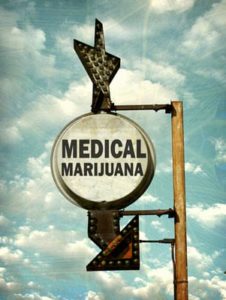 Free Consultation
(610) 667-7511
Free Consultation
(610) 667-7511
 Free Consultation
(610) 667-7511
Free Consultation
(610) 667-7511

No, it still won’t be legal to drive stoned in Pennsylvania.
As Pennsylvania’s House explores whether to legalize medical marijuana and much of the country explores legalizing marijuana, period, one question people are asking involves the legality of driving while under the influence of pot. The answer is quite straight forward. Regardless of the legality of marijuana, in Pennsylvania or anywhere, driving while stoned remains illegal. In other words, don’t do it.
The Pennsylvania law for medical marijuana specifically addresses the issue of driving under the influence. First, if you are not someone who has been granted a prescription for medical marijuana, using marijuana will remain illegal. Therefore the current law will be the law under which you may operate a vehicle. In this circumstance any amount of marijuana while driving will lead to some serious charges for you.
Controlled substances–An individual may not drive, operate or be in actual physical control of the movement of a vehicle under any of the following circumstances: (1) There is in the individual’s blood any amount of a: (i) Schedule I controlled substance, as defined in the act of April 14, 1972 (P.L.233, No.64), known as The Controlled Substance, Drug, Device and Cosmetic Act; (ii) Schedule II or Schedule III controlled substance, as defined in The Controlled Substance, Drug, Device and Cosmetic Act, which has not been medically prescribed for the individual; or (iii) metabolite of a substance under subparagraph (i) or (ii)
If you are a patient who has been provided a prescription for medical marijuana, the new law specifically addresses your rights to drive after using the drugs. The law states, unequivocally, that anyone under the influence at a certain level may not drive (or engage in a number of other activities.) These activities include driving a car, boat or other form of transportation, as well as operating heavy machinery. The law also addresses engaging in any professional task whereby being stoned could have an impact on your ability to perform your duties. This would include medical professionals, and, I imagine, lawyers.
Section 902 of the proposed statute, Prohibitions and Use addresses this issue.
(A1) Registered patient may not operate or be in physical control of any of the following while under the influence with a blood content of more than ten nanograms of active tetrahydrocannabis per milliliter of blood in serum: (I) a motor vehicle. (II) an aircraft. (III) a motor boat. (IV) heavy machinery. (V) a mode of transportation in a manner that would constitute an offense under 75 PA.C.S. CH. 38 (relating to driving after imbibing alcohol or utilizing drugs.)
(A2) Registered patient may not undertake any task under the influence of cannabis when doing so would constitute negligence or professional malpractice.
For a look at how quickly someone can reach too high to drive, check out this CNN video exploring the issue. (This video shows people smoking marijuana.)
In addition to criminal charges, if you get into a car accident while you are under the influence of marijuana, you could end up with a problem. It is very likely that you would be deemed to be the negligent party (financially responsible person) just as you would if you had alcohol in your system. If the accident is not your fault, you will have an uphill battle proving that it wasn’t, due to the drugs in your system.
Regardless of its legality in Pennsylvania, it is unwise to drive with any amount of marijuana in your system. You may be unaware of your level of impairment and could end up causing an accident or getting arrested.
LOWENTHAL AND ABRAMS, P.C.

Contact us for a FREE consultation. No fee unless compensated.